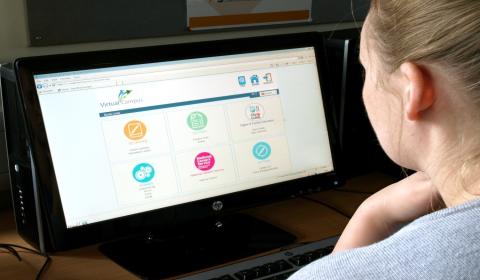Beyond the Gates

The Virtual Campus is a secure intranet system which has been developed for use in prisons.
At HERC we publish blog articles covering a wide range of issues that broadly relate to harm, evidence, crime and justice. In keeping with the critical position of HERC, our aim is to highlight all sides of the debate and to facilitate a discussion so that all voices are heard on the issue.
The Open University is 50 years old this year, and as part of its celebrations we were keen to reflect upon and champion something that we feel has been a vital contribution of the Open University in its history – the education of students in prisons.
The OU first opened to 22 students in two prisons in 1971; and there are now close to 2,000 learners studying with the OU across 150-plus 150 prisons and some 50 Secure Hospital Units. Almost a third of these study on modules and programmes in the arts or social sciences.
While the OU is not now unique in providing education to students in prison, we are by far the largest provider in this context. This is something of which we are very proud. That is why we developed the idea for a film that would reflect the experiences of some of our students studying in prison. At the same time, Beyond the Gates raises awareness both of the obstacles faced by those studying in a prison environment and about the issues we, as a university, face in trying to provide prisoner education within the current political context.
OU students in prison are also great testimony to the benefits of learning together. In the film, we capture the voices of some of our Associate Lecturers, many of whom find the experience of working with students in prisons to be both moving and humbling. The film also captures the vital work of the OU Students in Secure Environment (SiSE) programme. SiSE works proactively with students in prison, to widen participation to all areas of our curriculum, and to try and provide the same learning experience for students in prison as for those ‘on the outside’. We’re proud to work in an institution that is open to some of the most marginalised learners in our communities, confined in places that are perhaps at best boring and monotonous, at worst degrading, violent and inhumane. Studying can, we hear in the film, take a student’s mind, for a while, metaphorically ‘beyond the gates.’ And the benefits of that study are something from which the student can benefit when they are, quite literally, beyond the gates, walking free, with choices to make and fulfilling lives to lead.
Zoe Walkington is a Senior Lecturer in Psychology and Steve Tombs is a Professor of Criminology, both at The Open University.
